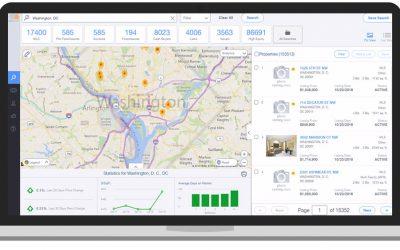
When you buy a fixer-upper property, you can create instant equity by renovating it. That lets you either sell it for a profit (flipping) or refinance and keep it as a cash-flowing rental property (the BRRRR method).
It sounds great on paper, but fixer-uppers don’t always turn out that way. You can quickly end up with a money pit that costs you far more than you can recoup by selling or refinancing.
Before investing in a fixer-upper home, make sure you understand the pitfalls and learn how to forecast your costs accurately.
What Is a Fixer-Upper?
At the risk of pulling a Captain Obvious, a fixer-upper is a real property that needs, well, fixing up.
That could mean anything from cosmetic updating to major renovations and gutting the building. On the cosmetic side, you may be able to make home improvements yourself on weekends over the next year. But for mechanical or structural repairs, plan on pulling permits and hiring licensed contractors.
And, of course, the more work the property needs, the greater the discount you can expect on the purchase price.
If this is your first home or investment property, stick with cosmetic improvements for your first rodeo. Avoid structural issues and major mechanical repairs at all costs. Trust me, you’ll still have more sweat equity challenges than you expect.
Why Buy a Fixer-Upper House?
Before knocking the idea of investing in a renovation project, consider all the benefits.
1. Lower Buying Price
Spoiler alert: fixer-upper homes tend to sell at a much lower purchase price than “move-in ready” or turnkey properties. Even if you scout properties on the MLS through a real estate agent rather than finding off-market properties, you can still potentially score a bargain.
If you’re handy, renovating the property yourself can compound your savings even further, compared to paying a contractor.
Beyond the obvious perks, the savings on a fixer-upper also lets you buy into a better neighborhood than you could otherwise afford. With a lower price comes a lower loan amount and monthly mortgage payments.
Lastly, a lower purchase price also means lower closing costs. Points and transfer taxes both cost less when you pay less for a property.
2. Fast Equity or Profit
Whether you buy a fixer-upper to live in, to keep as a rental (the BRRRR method), or to flip, you can “force equity” quickly through renovation.
If you flip the property immediately, the profit can help you expand your real estate portfolio. Use the profit as a down payment toward your next rental property purchase, which will then start generating monthly real estate cash flow for you.
You can do the same thing by refinancing however, pulling your initial down payment back out of the property when you refinance. Either way, you maintain a high velocity of money, keeping your investment dollars hard at work adding new properties to your portfolio.
 3. Customization
3. Customization
When you buy a property already in move-in condition, someone else has picked out all the finishes, which may or may not reflect your taste or priorities.
When you buy a fixer-upper, you get to customize it however you like when renovating it. You can design your dream house, with your ideal kitchen, bathrooms, flooring, and more.
4. Lower Initial Property Taxes
Your local county charges property taxes based on each property’s assessed value. A house that clearly needs updating means a lower assessed value, at least at first.
Eventually, the county assessor will figure out that your property has been updated. But that could take years, during which you benefit from lower property taxes.
Cons of Buying a Fixer-Upper
While flipping homes offers several pros, there are a few drawbacks to consider.
1. Risk of Hidden Renovation Costs
Like your parents always told you: you can’t judge a book by its cover. The same goes for housing investments.
A home could look as if it needs some light sprucing up, maybe a quick paint job or some new bathroom tiles. But after you get into the property to start renovating, you discover it needs new framing, or wiring, or plumbing, or any number of other, much more expensive fixes.
If you aren’t careful, a fixer-upper can quickly become a financial burden. It could even cost you more time and money to fix than the property is worth.
2. Risk of Delays
When you hire out renovations to contractors, they could drag their feet and fail to complete the project on time. Or, if the property legitimately needs more work than you expected, that too prolongs the project.
Those delays cost you money in the form of carrying costs and lost rents.
If you plan on fixing up the property yourself, your own time is a factor. And you run the risk of unforeseen issues preventing you from working on the property as planned, causing delays and higher costs.
3. Risk of Theft
Your contractor could run off to Mexico with your materials deposit. Or dodgy neighbors could steal your copper pipes or appliances or tools.
For that matter, squatters could move in and turn your renovation site into a crackhouse. And you know just how long the eviction process then takes, given their squatters’ rights.
4. Property Taxes Spiking
Although catching a break on property taxes at first sounds appealing, the assessor might get overly optimistic about your property’s assessment value and overcharge you on taxes. Sure, you can appeal the assessment, but that doesn’t mean your county will see reason rather than dollar signs.
Keep in mind, the more upgrading you do, the greater the value of the house and therefore the greater property taxes will cost.
Tips to Actually Profit on Fixer-Uppers
At the end of the day, you want this investment to be of profit, not become a money pit. Here are some ways to purchase a fixer-upper successfully without the financial loss.
Cost Analysis
Everything comes down to the numbers. Luckily, the math is quite simple. Add up all the costs to renovate and fix the property, including all carrying costs, by completing a thorough assessment of the property. Within this analysis, make sure to include the cost of all materials and labor needed.
Once all costs are added, subtract that from the market value you aspire the house to have once fixed. Consider the prices of the homes in the surrounding area for a solid estimate. When calculating costs, you would always rather over-estimate than spend much more than anticipated. Deduct an additional 10-20% for hidden costs and unforeseen problems during your initial inspection.
Start with Cosmetic Renovations
If the home needs significant repairs or work, many real estate experts suggest novice investors steer clear. Start with properties needing only cosmetic repairs, and avoid mechanical or structural problems such as roof repairs or foundation problems.
Ideally, you want to find a fixer-upper that contains a solid core, meaning all “invisible assets” are working and the only renovations will include paint jobs or other minor details. Not only do these improvements cost significantly less than updating an entire room, but mechanical and structural repairs come with far more risk of hidden extra costs. That includes both legitimate surprises and contractors simply looking for excuses to raise their quote midway through the renovation project.
For that matter, starting with smaller, cosmetic renovations lets you build trust and rapport with contractors. You can weed out the bad seeds, and scale only after building trust with a few reliable contractors.
Consider DIY When Possible
Whenever renovation is required, DIY (do-it-yourself) projects often prove the most cost effective.
Contractors are not only expensive but sometimes take considerably more time than what you could accomplish yourself. Although you can usually negotiate with contractors, they are not always reliable and projects can end up taking twice as long, therefore costing you more.
If you do not consider yourself handy, reach out to friends or family that could help.
Have an Exit Strategy
Like any investment, it is only successful once you receive your money back, plus a profit. You must have an exit strategy before buying, so you don’t end up in debt or another financial crisis.
That could mean flipping the property immediately for a profit, of course. Or it could mean following the BRRRR method (buy, renovate, rent, refinance, repeat) to keep the property as a rental and start earning cash flow from it. (See our free rental property calculator to run the numbers.)
Or you could keep the property as your primary residence. Live in it for at least two years so that when you sell, you can avoid capital gains taxes on the first $250,000 in profits ($500,000 for married couples)!
Fixer-Upper Mortgage Options for Homebuyers
If you are in the market to buy a fixer-upper, you can’t expect a traditional mortgage.
Still, you have several options for renovation mortgages. Those loan options depend on your exit strategy for the property, and homebuyers planning to move in after renovating have the following options.
FHA 203(k)
Through the Federal Housing Administration, an FHA 203(k) loan offers mortgages to those with lower income and lower credit scores. It remains among the most popular loans for homes needing improvement, with its 3.5% down payment for borrowers with credit scores over 580.
However, this FHA loan comes with a few drawbacks as well. It requires the owner to hire a Department of Housing and an Urban Development consultant to pre-approve the plans to the property. As an FHA loan, it also requires you to pay mortgage insurance (MIP) for the entire life of the loan — even after you pay the balance below 80% of the property value.
VA Renovation Loan
This was recently updated by the Department of Veterans Affairs to include home investments and renovations. However, a VA-approved contractor is required on these loans and the lender has the ability to charge you a construction fee.
You can even use the legendary 0% down VA loans for investment properties — sort of. You can buy properties with up to four units, and after living in the property for one year, you can move out and keep the property as a rental.
HomeStyle
Although a better credit score is required, Fannie Mae HomeStyle mortgages offer luxury improvements such as landscaping or pool renovations. Because it’s a conventional loan, you can remove mortgage insurance after the loan balance drops below 80% of the home’s value.
CHOICERenovation Loans
This mortgage offers improvements that assist properties with standard upgrades as well as natural disaster protection. If you are considering purchasing a fixer-upper in an area that is prone to severe weather events, this loan, guaranteed by Freddie Mac, may be the smartest option.
Keep in mind that lenders find home improvement loans riskier and sometimes charge a higher down payment on the property.
Fixer-Upper Loan Options for Investors
Whether you’re looking to flip the property or keep it as a rental, you’re probably looking at a hard money loan.
These purchase-rehab loans tend to be short-term, usually 6-18 months. Often, they charge interest only, with no amortization. Once you complete the renovation, you either sell the property as a flip and pay off the loan upon sale, or refinance the property as a BRRRR and pay off the loan that way.
For a wide range of options compared by interest rate, LTV, and loan requirements, see our Investment Property Loans page. A few reputable purchase-rehab lenders include:
-
- Forman Loans (Best Perks: Will Comparison Shop to Find Best Interest Rates)
- Kiavi (Best Perks: High LTV, Moderate Interest Rates)
- New Silver (Best Perks: No Hard Credit Pull)
- RCN Capital (Best Perks: Low Loan Minimum)
- Lendency (Best Perks: High LTV, Allows Low Credit, No Cash Reserves Required)
To view today’s interest rates on renovation loans, check Lendency with the tool below:
Alternatively, you can also contact local and regional banks in your area to ask about renovation-perm loans that don’t require a refinance upon completing the renovations.
How to Buy a Fixer-Upper With No Money
Looking at the options above and wondering how to buy fixer-uppers without much cash?
Unfortunately real estate investing does require a lot of capital. But you can still use a few “cheat codes” to invest in properties without much money.
First, bear in mind that you can refinance the property after renovating it and potentially pull all of your money back out of it (the BRRRR method). That leaves you with no money tied up in the property, setting you up for infinite returns on your $0 investment. But you still need cash for the initial down payment.
Most investment property loans require a 20-30% down payment, plus cash for closing costs, plus cash reserves, plus money to cover the first round of repairs (which is then reimbursed by the lender according to the draw schedule). In other words, you need a ton of cash to buy fixer-uppers.
That said, you can borrow some or even all of that cash from other sources. The best example is unsecured business lines of credit, which you qualify for as a real estate investor. Business credit concierge services like Fund&Grow help real estate investors open $100-250K in unsecured business credit lines and cards. In many cases, they come with an introductory 0% APR period of up to 18 months, for interest-free borrowing.
I once used a personal credit card to finance the down payment and renovations for a fixer-upper property. Using tools like Plastiq, you can pull cash from a credit card without it counting as a cash advance, costing a total fee of 2.9%. That’s less than the cost of many mortgage lenders’ points and flat fees.
You can also put the cost of materials directly on your cards, with no fees. In fact, you can even earn reward points on all of these charges to your card.
Similarly, you can use home equity loans, HELOCs, or personal loans to cover your down payment, closing costs, and the cost of renovations as well. You can even take out a HELOC on other rental properties in your portfolio.
As a final idea, you can borrow gap funding to cover these costs. Gap lenders take a second lien against the property, potentially letting you buy the property with no money down. Just don’t expect gap loans to be cheap — in fact, some gap lenders require an equity share in the profits on the property to justify their risk.
Final Thoughts
Buying a fixer-upper, while a risk, also offers great reward if planned and financed strategically. Make sure to know exactly what you are getting yourself into and learn how to handle a fixer-upper before pulling the trigger.
Most importantly, generously estimate all costs because projects such as home renovation or improvement, more often than not, come with hidden costs or mishaps that we don’t see coming.♦
What do you wish you knew when you were learning how to buy a fixer-upper? If you haven’t bought one yet, what are your biggest questions about how to get a fixer-upper without losing money?
More Real Estate Investing Reads:
About the Author

Emma Dudley is a data marketer by day and financial writer by night, early on her journey to financial independence. She lives in Baltimore but loves international travel, and enjoys the challenge of cutting-edge fashion on a cut-down budget.



























I think buying a fixer upper and using the BRRRR method is the best way to build a rental portfolio. From experience there are always a few surprise issues during the rehab so you just need to make sure you have contingencies in your estimation so it doesn’t burn you.
I love the BRRRR strategy too Tony! Great way to force equity right from the beginning.
I have been looking to move past cosmetic rehab for a long time now. Thank you for sharing!
Glad it was useful Greg!
Important advice for new real estate investors. Thank you!
Thanks Harry!
Great information! I mentioned you in my post https://www.canmoreabhomes.com/blog/which-is-better-turn-key-or-fixer-upper/
Thanks Devin!
Buying fixer-uppers is a great experience – once you have the right team in place. That goes especially for contractors. Get the right people working and your renovation will go smoothly.
Amen Danny!
I’d love to buy a fixer upper but I can’t find one. Amateur problems.
They get snatched up quickly in some markets!
These always come with more work than you expect. It can be worth it for experienced investors, but if you’re a newbie, strap in and prepare for a wild ride.
So true Jenica!
Nice piece of advice for the real estate investors thanks for sharing.
Glad you got something out of it Morrison!